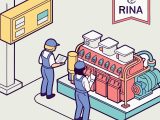
Bramble Energy Collapse Deals Heavy Blow to HGEN
November 10, 2025On 7 November 2025, Bramble Energy—once a trailblazer in printed circuit board hydrogen fuel cells—went into administration after failing to lock in fresh funding. That collapse forced Hydrogen Capital Growth (HGEN) to write off its entire £11 million stake (around 9% of its NAV), a stark reminder of how tough the terrain can be for early-stage clean energy startups—and a blow to efforts around sustainable energy and industrial decarbonization in the UK.
Core News Summary
Bramble Energy, celebrated for its low-cost PCBFC stacks, couldn’t close its latest funding round and simply ran out of runway. That triggered an immediate hit to HGEN, whose shares had already been suspended in September after RWC took over the managed wind-down (following a July board decision to replace HydrogenOne Capital). Even a thumbs-up from Toyota couldn’t save Bramble, leaving investors scrambling to revalue their portfolios.
How PCB Fuel Cells Work
Bramble’s printed circuit board fuel cells (PCBFCs) marry metalized, laminated circuit boards with the core electrochemistry and structure of a fuel cell stack. The pitch? Halve production costs, ramp up modular scalability and boost energy density—ideal for hydrogen-powered buses and logistics vehicles in the push for cleaner transport.
Business Ripple Effects
This isn’t just a one-off drama; it highlights structural gaps in the UK hydrogen ecosystem. Institutional backers like HGEN are licking their wounds, while other cleantech funds may second-guess backing unproven startups. And the episode flags a bigger headache: portfolio valuation. RWC struggled to slap reliable price tags on early-stage bets, which is why trades got suspended back in September.
Institutional Takeaways
- UK funding gaps: Unlike the US and China—where chunky policy incentives and large-scale projects bolster investor confidence—the UK still lacks a cohesive industrial strategy for hydrogen scale-up.
- Valuation volatility: Early-stage clean energy and hydrogen fuel cells assets can swing wildly in value, complicating fund management and shareholder chats.
- Due diligence on tech readiness: Even with Toyota kicking the tires of its fuel cell technology, Bramble couldn’t turn technical promise into commercial traction.
Wider Implications for the Hydrogen Sector
The Bramble-HGEN saga could freeze future funding rounds, slowing the rollout of zero-emission solutions in transport and logistics. Without fresh capital, innovators can’t move from lab prototypes to factory floors—leaving the UK trailing in hydrogen production, storage and infrastructure. As small outfits stumble, bigger OEMs and utilities might look overseas, reinforcing doubts about domestic policy stability.
Looking Ahead
It’s not game over for hydrogen’s role in the UK energy mix—but this setback calls for a reboot. We need clearer government signals, defined funding pathways and tighter collaboration between investors, startups and engineers. Otherwise, promising fuel cell technology will stall for lack of runway rather than power our shift to sustainable energy.
As the sector digests this news, one question looms large: can the UK sharpen its industrial strategy fast enough to keep hydrogen innovation—and capital—flowing?



 With over 15 years of reporting hydrogen news, we are your premier source for the latest updates and insights in hydrogen and renewable energy.
With over 15 years of reporting hydrogen news, we are your premier source for the latest updates and insights in hydrogen and renewable energy.